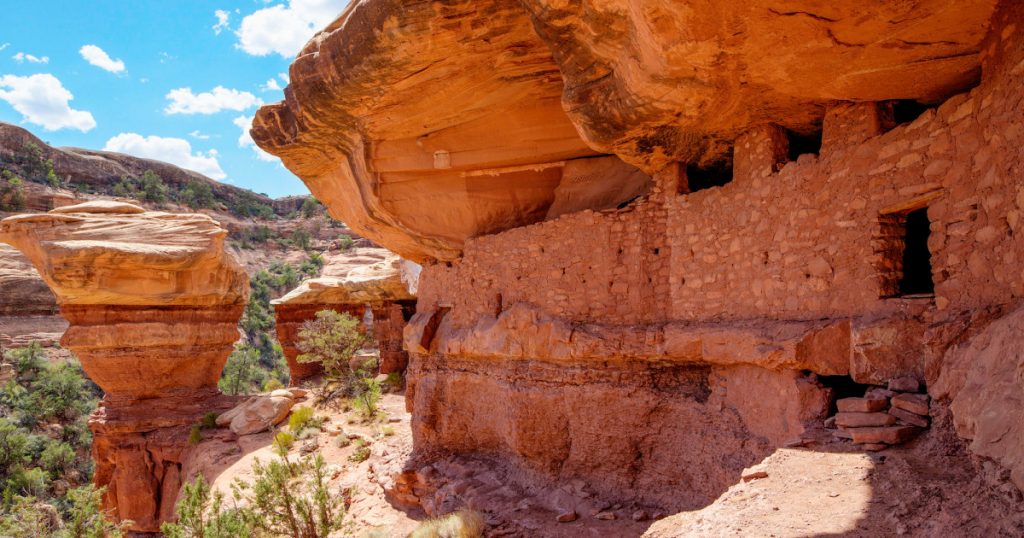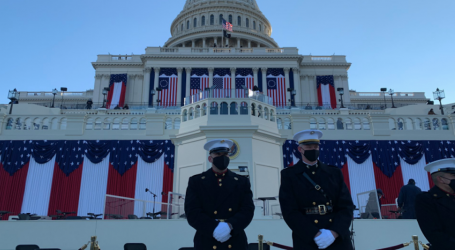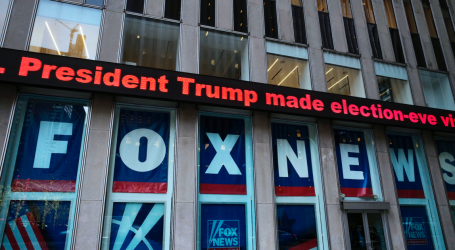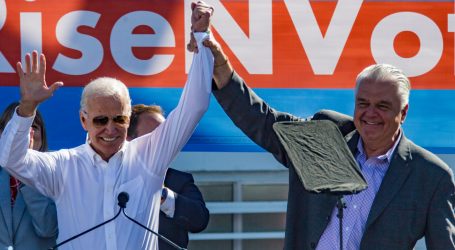After Insulting Native Americans, Trump Goes After Their Sacred Land
Trump’s disparagement of Native Americans doesn’t end with his rhetoric. A day after Trump called Sen. Elizabeth Warren (D-Mass.) “Pocahontas” at an event honoring Navajo code talkers during World War II, the Salt Lake Tribune reports that the president will visit Salt Lake City, Utah, next Monday to announce that he’s shrinking national monuments of huge importance to Native Americans.
Without visiting the monuments he’s targeted, Trump is expected to announce his decision on a review conducted by Interior Secretary Ryan Zinke. He reportedly told Sen. Orrin Hatch (R-Utah) that he will shrink the 1.35 million acres Bears Ears and 1.9 million acres Grand Staircase-Escalante monuments to a fraction of their original sizes.
Bears Ears alone contains thousands of Native American archaeological, sacred and cultural sites. Last December, Obama signed the monument proclamation that noted the “Abundant rock art, ancient cliff dwellings, ceremonial sites, and countless other artifacts” contained within the rock formation. At the time, The Atlantic‘s Rob Meyer explained its importance to Native nations, quoting one activist who said the designation “actually brought tears to my face.”
Five sovereign Native nations—including the Navajo, Hopi, Zuni, and Ute—had petitioned the president earlier this year to grant federal monument protections to the area. All five tribes attest that the area is dense with burial grounds and cultural sites. In the 19th century, Navajo leaders used the area’s canyons to hide from the U.S. government’s campaign of forced relocation, “the long walk to Bosque Redondo.” Outside archeologists know the area for its unmatched record of rock carvings, which go back thousands of years before the common era.
Rebecca Tsosie, a law professor at the University of Arizona who is of Yaqui descent, said that one of the best aspects of
the president’s proclamation was that it recognized Native people still use and need public lands today.
“The Antiquities Act was a statute that was very paternalistic toward Native people. It said that Native people are part of America’s past, they’re part of America’s history,” Tsosie told me. “If you read the president’s proclamation, it extends the act toward contemporary people. It’s a wonderful notion—it doesn’t freeze anything in the past.”





